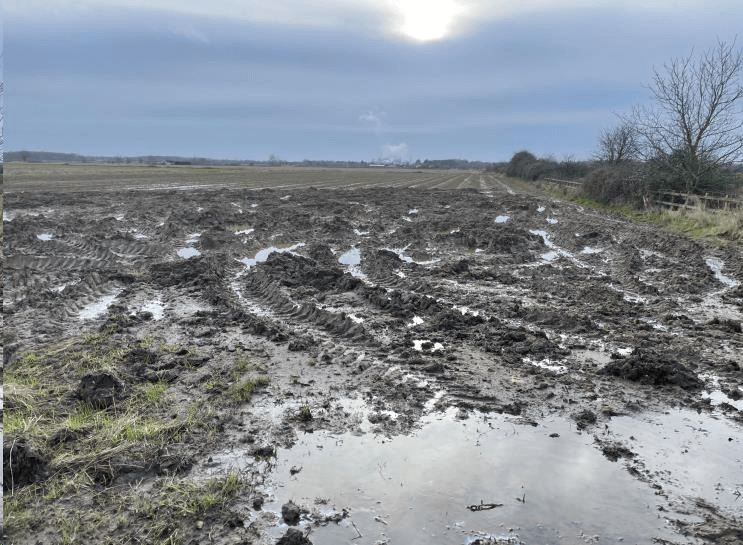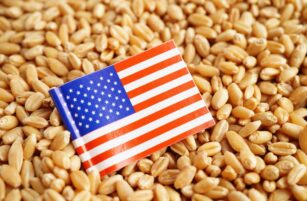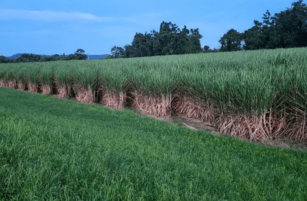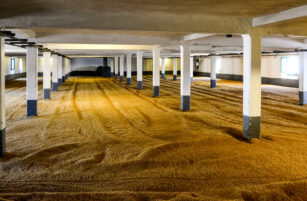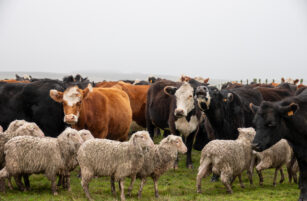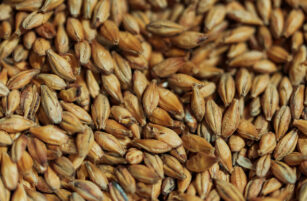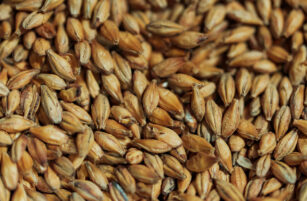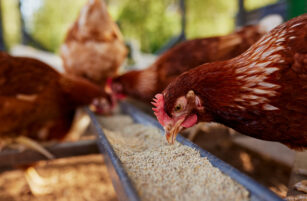Insight Focus
- The farm is experiencing heavy rainfall and above-average temperatures.
- It is unlikely we will see record yields this year due to weather conditions.
- More uncertainty is heaped on due to elections and decarbonisation legislation.
What’s Happening on The Farm?
Well at least the days are getting longer. You have to be positive if you are a farmer and, unhelpfully, my dear old Dad used to say “and the cold gets stronger”.
Climate change would appear to be challenging this statement as, apart from a short period of extreme cold (for Norfolk), we have seen and continue to see markedly above-normal temperatures. Looking forward over the next month we expect temperature to be some 3⁰C above normal.

Rain has continued to fall; I am surprised there can be so much up there. We are now some 150% of normal rainfall.

The New Year brings new forms to fill in. This morning the Environment Agency popped in for a discussion on how I shouldn’t use inputs. This required about 100 pages of useful stuff, most of which the EA had produced themselves, which supports my farming practices.
Sensibly, at this time of year, there are many conferences and meetings to attend and learn from. Mine was held in a building of God — appropriate considering what is currently going on in agriculture. Just ask the Dutch, Belgium and German farmers.
But to my surprise the hosts, ADAS, put on a very positive event that discussed how to gain yield and showcased what some farmers within Europe can and are doing.

Happily, the processor and grower have agreed terms for harvest ’24. Much to my delight, two days after this I was sent an email from the processor setting out their vision of “Growing Together” along with an invite to a meeting at my local factory, which I took up.
I didn’t understand a word of the presentation as it was all “media speak”. No one talked price.
And one of our former employees met his current employer, just before Christmas.

At What Stage Is Your Crop?
a) Wheat/Rye
The lesson here is that wheat doesn’t like a wet “back end”. We have continued to plant since I last wrote, and the crop is slowly emerging. My guess is we will be circa 90% planted of our plan, but we are not going to see record wheat yields this year.
We will be applying nitrogen to encourage growth and tillering very soon. This is the earliest I can ever remember doing this.
b) Oilseed rape
Over the hedge I remain deeply envious of my neighbour, who clearly has done his job well and spring growth can be seen as we warm up. As with wheat though, you can see some awful looking oilseed rape crops if you travel away from Fincham.
c) Sugar Beet
Unless you are directly involved with this crop, you forget how hard this is. Lorries ran through the holiday period delivering to our local factory, but there is a marked drop off in delivery during this period. Although we have not suffered any serious frost damage, we see no sugar in the root. It is argued that there is bulk, because of the rain, but it just makes life harder than it need be. Also, soil damage has impacts on the following crop.

We have lifted on a “just in time” basis but now are facing rising temperatures, which will encourage the beet to start growing again (to produce seed). You can hear the sugar levels dropping like stones as the plant uses it stored energy.
d) Others (Maize/SFI)
I think we will see an early spring and so plans are in place to take advantage of this in terms of seed sourcing. If we have had so much rain so far, at some point the law of average says it must stop.
What Big Concerns Do You Have at The Moment?
Price, for our crops.
In a recent sugar presentation, it stated that sugar farmers, globally, are getting the best prices they received in a long time. Not in England.
The reasoning for this is simple and has been the case for many years. There is a monopoly producer with a big balance sheet and clever people. Government has demonstrated it doesn’t care or understand.
Farmers will plant less beet if it isn’t worth their while. That’s a risk if the sugar price is negotiated in the future in the same way as it has this and previous years. If you don’t change something, nothing changes.

And I don’t blame the processor. It is a big nasty beast that must return value to its shareholders, otherwise the share price goes down and many people get fired. Maybe the growers should buy some shares?
Elsewhere, the real threat to my farm this coming summer will be drought and yield loss. It doesn’t look like price is going to compensate.
We are updating our plans and budgets through to 2030 and beyond using much guesswork. Apart from the possibility of sugar production leaving Norfolk, I am facing the following:
- A general election, with change of agricultural policy depending on whoever wins.
- Complete loss of state support to agriculture. Protesters (and good for them) put 49 scarecrows on Parliament Green, in London, to signify the percentage of farmers that will go broke. I bet they cleared them away after the protest. The French have closed Paris down!
- A decarbonising of UK agriculture which, from what I can understand, means banning/taxing ammonium nitrate. Big business appears to be pushing this one down the food chain and we farmers are at the bottom of that.
- War, which now does not seem to worry anyone that doesn’t have a gun or drone pointed at them.

e) Jackie’s Patch and other comments
Great things are promised this year, but she was on holiday at the time.

